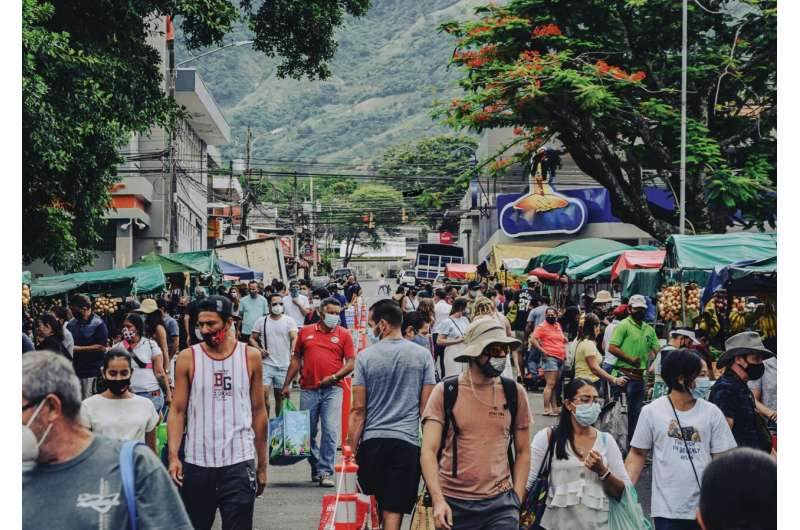Focusing on the present during the pandemic can reduce longer-term mental health impacts

Focusing on the present and not the past or future will better protect your mental health and wellbeing during the COVID 19 pandemic, a new study has found.
The research, led by Dr. Jingshi Liu at Bayes Business School (formerly Cass) and academics at Hong Kong University of Science and Technology (HKUST), explores how people's social roles—those of parent, child, employee, student, spouse/partner, friend, and sibling—have changed as a result of the pandemic.
Findings show that individuals feel more inauthentic and out of touch with their true-self when COVID 19's restrictions force them to change their regular day-to-day social roles, which reinforce a sense of identity.
Results indicate that this is the case irrespective of individuals' feelings about the changes in social roles or the pandemic itself. For example, while individuals may enjoy spending more time with their family, having to home school their children while working from home changes what it means to be a parent and an employee, and these changes make individuals feel less authentically themselves.
Dr. Liu offers a coping strategy in the report's findings—to focus on the here-and-now and not what has already happened or may happen in the future. This strategy is effective as it reduces the perception of a disconnect between past, present, and future and thereby limits the view of how the self has been disrupted.
Failure to control these temporal perspectives can influence people's health, happiness, and sense of self. For example, focusing on an uncertain future at a time where people cannot foresee possible future shocks to social systems and roles, and cannot set concrete goals and plans, may increase this state of discontinuity.
Dr. Liu said: "The pandemic has brought about a drastic change to how we view ourselves and how we function within society. The unprecedented disruptions to our social lives, albeit enforced by law makers to ensure physical safety, means the self-authenticity that we all need—as a foundation of mental health—has become warped and misshapen.
"By safeguarding our feelings of authenticity, we are able to remain in touch with our true selves, and public health advice should encourage a school of thinking that supports a 'one day at a time' mentality. Failure to do so could impact people's long-term psychological wellbeing."
The full report "The 'Self' under COVID-19: Social role disruptions, self-authenticity, and present-focused coping," by Dr. Jingshi Liu, Lecturer in Marketing at Bayes Business School, Dr. Amy Dalton, Associate Professor of Marketing at HKUST and Jeremy Lee, Research Assistant at HKUST, is published in PLOS ONE.
More information: Jingshi (Joyce) Liu et al, The "Self" under COVID-19: Social role disruptions, self-authenticity and present-focused coping, PLOS ONE (2021). DOI: 10.1371/journal.pone.0256939





















